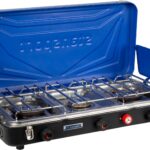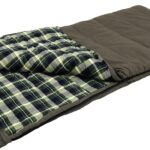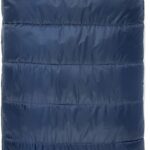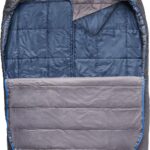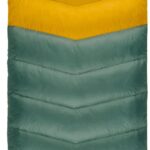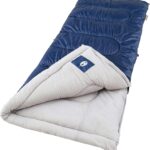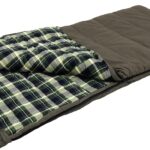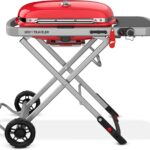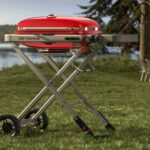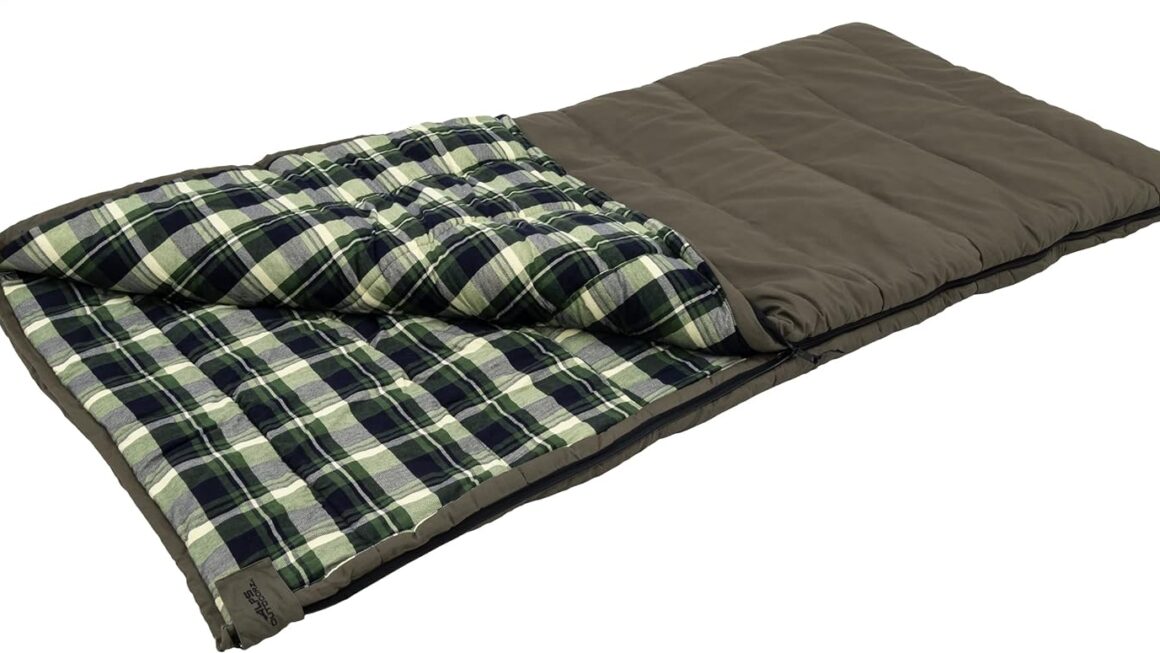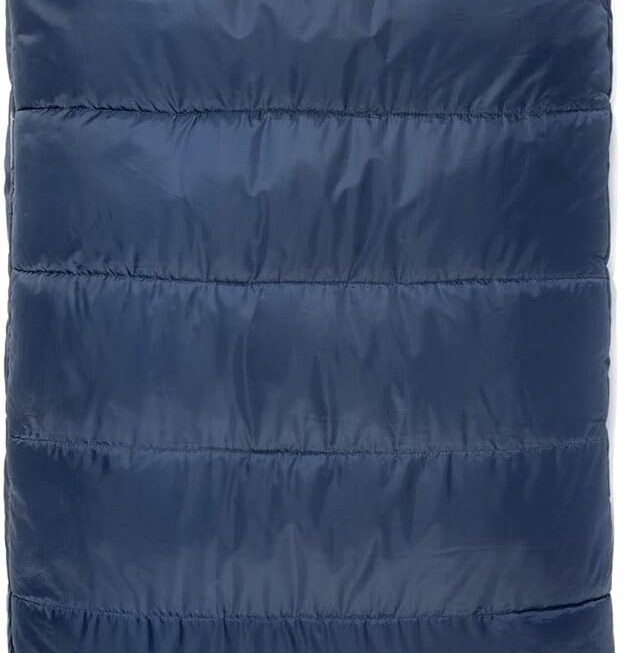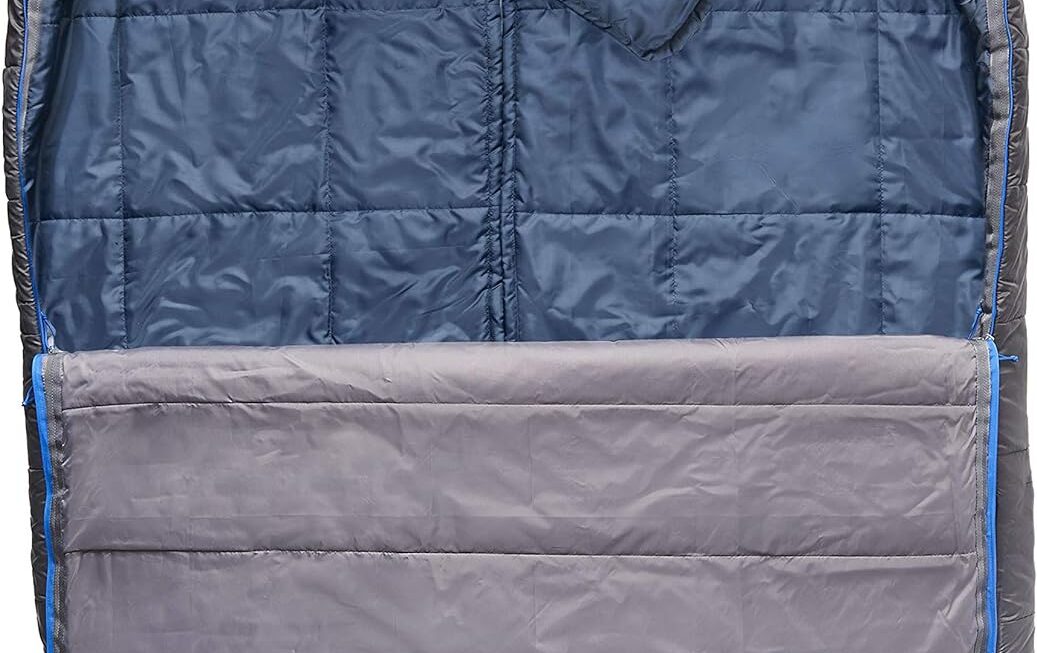The freedom and solitude of solo camping offer a unique way to connect with nature. But venturing alone requires a reliable companion: your tent, the best camping tent for 1 person. Choosing the right one impacts the entire experience, from setting up camp after a long hike to getting a good night’s sleep under the stars. This guide equips you with the knowledge to find the perfect one-person haven. Let’s get started with gearupcaming.info now.
Best Camping Tent For 1 Person
Why the Right Tent Matters
Imagine arriving at your campsite after a challenging hike, only to struggle with a complicated tent setup in fading light. A poorly chosen tent can quickly turn a solo adventure sour. The right tent provides a comfortable haven from the elements, protects you from unexpected downpours, and ensures a restful sleep. It directly impacts your overall enjoyment and safety on the trail.
Factors to Consider
When selecting a camping tent for 1 person, several key factors come into play:
- Size and Weight: Balancing weight for easy backpacking with enough space for comfort is crucial.
- Durability and Weather Resistance: Withstanding harsh weather conditions is essential for a safe and enjoyable trip.
- Ease of Setup: Setting up your tent quickly after a long day allows you to relax and enjoy your surroundings sooner.
- Portability: A compact tent packs down easily and fits comfortably in your backpack.
- Comfort and Features: A good night’s sleep is vital. Consider features like ventilation, storage space, and livability.
We’ll also analyze popular tents in the same price range as the Night Cat Upgraded Backpacking Tent (around $100-$150) to see how they compare.
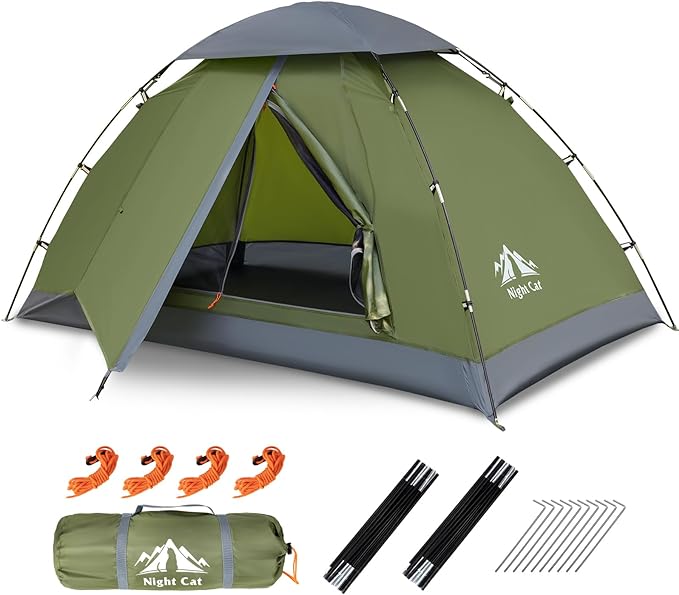
Compare With Some Other Camping Tents
| Feature | Night Cat Upgraded Backpacking Tents | Kelty Late Start 1P – Lightweight Solo Backpacking Tent | TETON Sports Mountain Ultra Tents – 1 and 2-Person Backpacking Tent | 2-Person Dome Tent by Wakeman Outdoors |
| Brand | Night Cat | Kelty | TETON Sports | Wakeman Outdoors |
| Weight | 4.41 Pounds | 3 Pounds | 4.7 Pounds | 3.13 Pounds |
| Size | 83″L x 45″W x 45″H | 85″L x 40″W x 30″H | 80″L x 30″W x 41″H | 77″L x 57″W x 40″H |
| Rating | 4.5 | 4.7 | 4.6 | 4.2 |
| Capacity | 1 Person | 1 Person | 1 Person | 2 Person |
| Seasons | 3 Season | 3 Season | 4 Season | 3 Season |
| Shape | Dome | Round | Dome | Dome |
| Pros | Easy Clip Setup, Lightweight, Compact | Fast Setup, Waterproof Fly (1200mm) | All-weather (4 Season), Stargazing Mesh Top | Easy Setup, Affordable |
| Cons | Lower Water Resistance (1500mm) | Less Spacious | Heavier | Lower Water Resistance (190mm), Less Spacious for 2 |
| Included Components | Stakes, Pole | Tent, Rain Fly, Stuff Sack | Poles, Carry Bag, Tent Stakes, Rainfly | Tent |
| Water Resistance Technology | 1500 Mm | 1200 Mm | Not specified | 190 Mm |
| Buy on | Amazon | Amazon | Amazon | Amazon |
Additional Notes:
- The Night Cat Upgraded Backpacking Tents is the easiest to set up with its Easy Clip Setup.
- The Kelty Late Start 1P – Lightweight Solo Backpacking Tent is the most waterproof with a 1200mm water resistance rating.
- The TETON Sports Mountain Ultra Tents – 1 and 2-Person Backpacking Tent is the only tent that is all-weather (4 seasons) and has a stargazing mesh top.
The Wakeman Outdoors 2-Person Dome Tent is the most affordable and easiest to set up, but it has the lowest water resistance rating and is less spacious for 2 people.
Size and Weight: Finding the Sweet Spot
Camping Tent For 1 Person Sizing
Solo tents prioritize weight and portability over space. However, ensure you have enough room for your sleeping bag, pad, and some gear storage. Ideally, the tent should allow you to sit upright comfortably without feeling cramped.
Weight Considerations
For backpackers, weight is a major concern. The best ultralight tent for backpacking (under 5 lbs) prioritizes portability but might feel tight. Consider the distance you’ll be hiking and how much weight you’re comfortable carrying.
Size and Weight Comparison:
Here’s a breakdown of common solo tent sizes and their weight ranges:
- Small & Ultralight (1-2 person): 3-4 lbs. Ideal for minimalists, but might feel cramped. (e.g., Night Cat Upgraded Backpacking Tent – 1 Person)
- Larger Backpacking Tents (2-3 person): 5-7 lbs. Offer more space and comfort, but come at the cost of weight. (e.g., Kelty Trailblazer 1P)
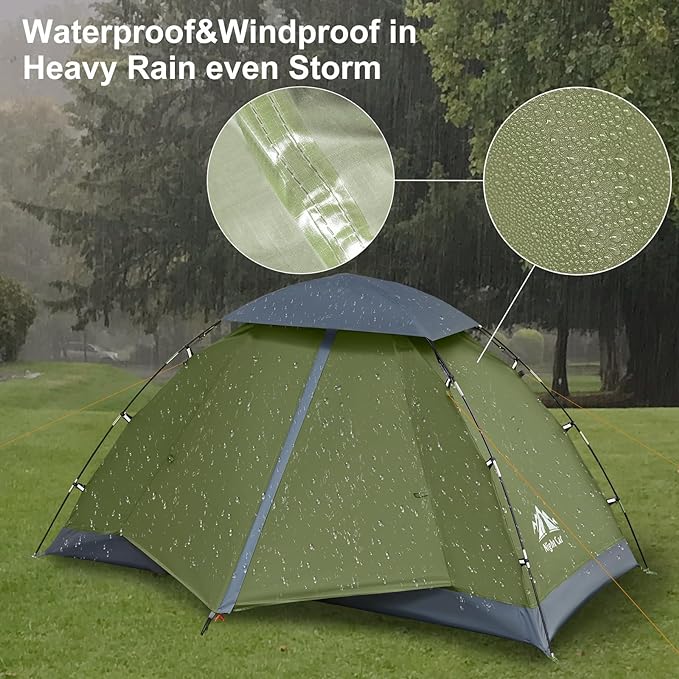
Durability and Weather Resistance: Keeping the Elements at Bay
Why Durability Matters
A durable tent ensures long-term use and protects you from unexpected weather changes, full rain fly tent. You don’t want your tent ripping in strong winds or leaking during a sudden downpour.
Weatherproofing Factors:
Several factors determine how well a tent holds up against the elements:
- Fabric Quality: Look for high-quality polyester or nylon with a PU (polyurethane) waterproof rating. A higher rating indicates better water resistance. (e.g., 3000mm for moderate rain, 5000mm+ for heavy rain)
- Seam Construction: Taped seams prevent leaks at the stitching points.
- Poles: Fiberglass poles offer good flexibility but can break under heavy pressure. Aluminum poles are stronger but heavier.
Ease of Setup: Pitching The Best Camping Tent For 1 Person in a Flash
Why Quick Setup Matters
After a long hike, setting up your tent quickly is a major advantage. Rather than Fumbling with complicated poles. Should choose the easiest tent to set up by yourself.
Factors for Easy Setup
Several features contribute to a quick and hassle-free setup:
- Clip System vs. Pole Sleeves: Clip systems, like the one on the Night Cat, allow for easy attachment of poles to the tent body, saving time and frustration. Traditional pole sleeves require threading the poles through sleeves, which can be trickier, especially in low light.
- Number of Poles: Fewer poles generally mean a faster setup.
- Freestanding vs. Non-Freestanding: Freestanding tents can be pitched anywhere without needing stakes, offering more flexibility. However, non-freestanding tents might require staking for stability, adding a step to the setup process.
Comfort and Features: Making Your Tent a Home Away from Home
Why Comfort Matters
A good night’s sleep is essential for a successful camping for 1 person. A cramped tent with poor ventilation will leave you feeling restless and affect your overall enjoyment of the trip.
Comfort Considerations:
Several factors contribute to a comfortable camping tent for 1 person:
- Interior Space: Enough room to sit upright comfortably and store your gear is crucial.
- Ventilation: Mesh panels allow for airflow and prevent condensation buildup, reducing humidity and keeping you comfortable.
- Storage Pockets: Handy for organizing headlamps, maps, and other small essentials.
- Vestibule: Provides extra covered space for storing dirty boots or wet gear outside the main tent body.
Finding Your Perfect Solo Sanctuary
Choosing the right tent for 1 person requires careful consideration of your priorities. Here’s a quick recap:
- Prioritize weight for long hikes, but ensure enough space for comfort.
- Focus on durability and weather resistance for challenging conditions.
- Choose a tent with a clip system or freestanding design for easy setup.
- Consider features like ventilation, storage, and a vestibule for added comfort.
Remember, there’s no single “best” tent. The ideal choice depends on your individual needs and budget. By prioritizing the factors most important to you, you’ll find the perfect one-person haven for your solo adventures.
FAQs
1. What is the best camping tent size for 1 person?
A 1-2-person tent offers a good balance of weight and space for solo adventurers.
2. Ensuring Weather Resistance?
Look for a tent with a PU rating of 3000mm or higher and taped seams. Consider a footprint (groundsheet) for added protection from moisture.
3. Special Features For Camping Tents For 1 Person?
Look for features like a clip system for easy setup, good ventilation with mesh panels, a vestibule for gear storage, and a lightweight, packable design.
Conclusion: Finding Your Perfect Solo Sanctuary
Choosing the right solo tent requires careful consideration of your priorities. Prioritize weight for long hikes, but ensure enough space for comfort. Focus on durability and weather resistance for challenging conditions. Choose the best camping tent for 1 person with a clip system or freestanding design for easy setup. Consider features like ventilation, storage, and a vestibule for added comfort. Remember, there’s no single “best” tent. The ideal choice depends on your individual needs and budget. You’ll find the perfect one-person haven for your solo adventures by prioritizing the factors most important to you.
Happy solo camping!

